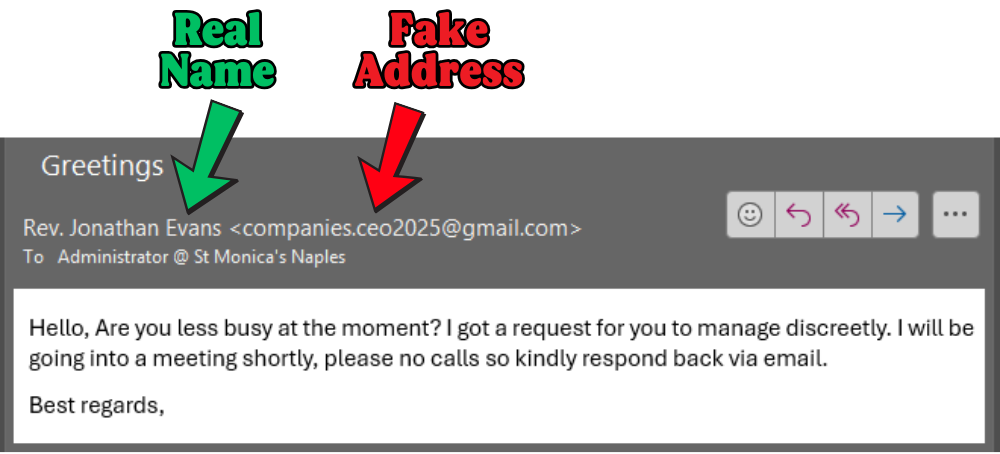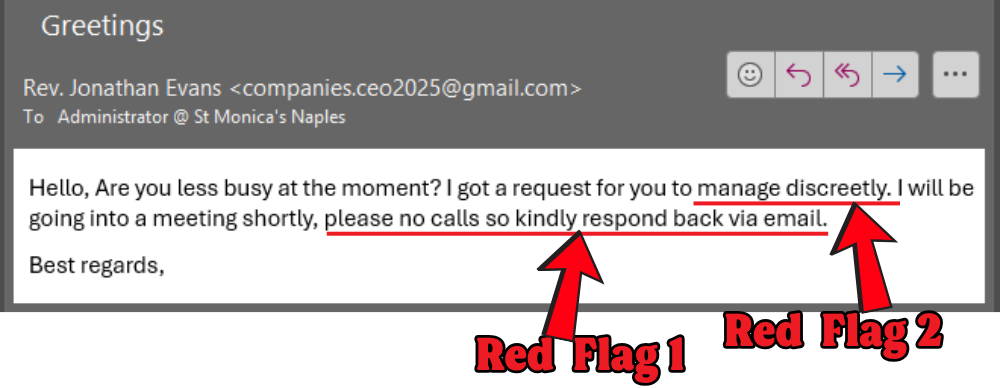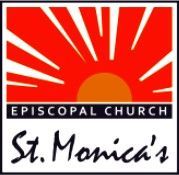EMAIL SAFTY & SECURITY
Discover ways to safeguard your information and avoid becoming a victim!
Why Scammers Target Churches and Their Members
Churches are often seen as ideal targets by scammers for several reasons:
High Trust Environment
Church communities are built on trust, which scammers exploit. Members are more likely to respond to emails, texts, or calls that appear to come from trusted church leaders or staff.


Public Information
Churches often share leadership names, events, and contact information publicly on websites and in bulletins, which unfortunately makes it easier for scammers to impersonate clergy or staff in phishing attempts. This is one of the key reasons why St. Monica’s is working to reduce how much of this information is shared publicly.
Generous Givers
Many church members are naturally generous and willing to give when they believe there’s a need, especially if it seems like a request from a pastor or a mission outreach. Scammers take advantage of this goodwill by asking for fake donations, gift cards, or emergency support.


Limited Tech Infrastructure
Churches may not always have the same level of IT security or training as businesses. This can make them more vulnerable to email spoofing, data breaches, and fraudulent access attempts.
Valuable Member Data
Church databases often include full names, addresses, phone numbers, emails, and sometimes even donation history. This is information that scammers can use for identity theft or to craft convincing scams targeting individuals.


Targeting Older Generations
Churches often have older members who may be more trusting or less familiar with digital scams, making them frequent targets for fraud.
PROTECT YOURSELF BY KNOWING
THESE FEW THINGS...

They Copy the Name
Not the Address
A scammer may create a fake email account using the name of someone you trust, such as “Fr. John Dow.” The message could appear to come from an address like:
fr.john.doe@gmail.com or churchpastor123@yahoo.com
These emails are not from the official church domain or the address you normally recognize. Many people only glance at the sender’s name, not the full email address, which makes the message seem legitimate at first.
Always check the full email address the message was sent from. In some email programs, you may need to hover over the name to see the actual address.
They Mimic Language
and Style
Scammers often write in a friendly or urgent tone that sounds like something your pastor or colleague might say. They might ask, “Can you do me a quick favor?” or “I need help with something private.”


They Ask for Sensitive Information or Gift Cards
Once they get a response or earn your trust, they may ask you to:
Send gift cards (such as Amazon or Apple cards)
Share personal or financial information
Click a link that takes you to a fake login page
Open an attachment that installs malware
PROTECT THE CHURCH & OUR COMMUNITY
Remaining vigilant is crucial. Scammers thrive on individuals acting hastily without verification. Should you receive a message that appears suspicious, even if it seems to come from someone you recognize, take a moment to verify before responding or clicking any links.
You can do this by either calling the Church directory (don't allow them to "transfer" you if you are on the phone, or click on the "reply" button if in an email. Compose a new email and use the address you know is correct.
